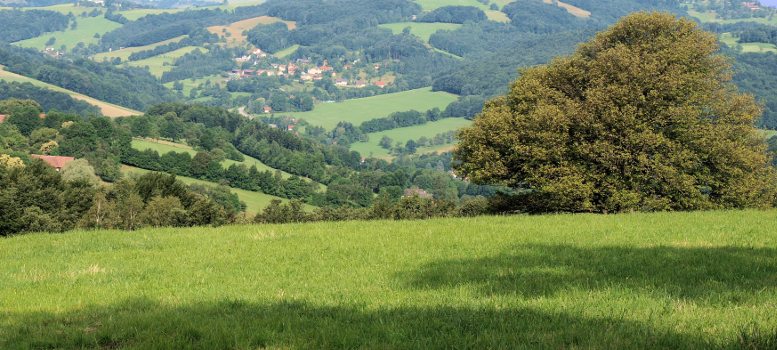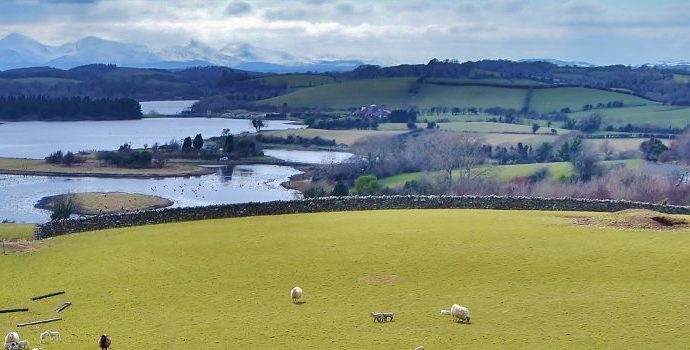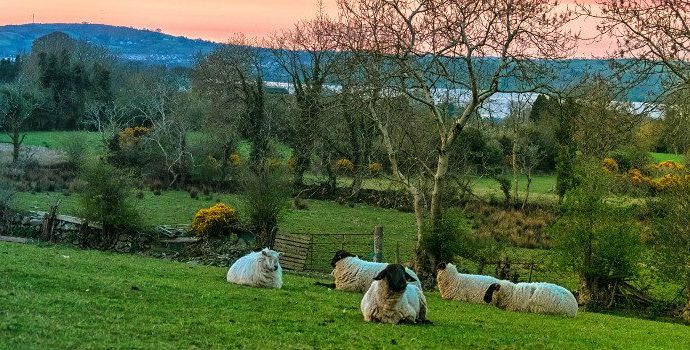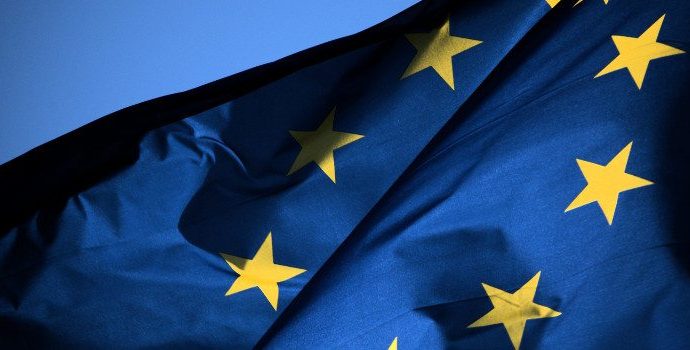CAP Council Report October 2020

MFF 2021 – 2027
- On July 22nd, the EU Council agreed a recovery package for Europe due to the Economic turmoil arising from the COVID-19 pandemic and a 7-year Multi Financial Framework (MFF). The total package is worth €1.8trillion.
- The Package includes a revised MFF for the next 7 years of €1,074bn (Constant Prices) or €1,210bn (Current Prices) and a Next Generation EU Recovery and Resilience Fund of €750bn.
- The agreed MFF conclusions adopted by the European Council are been discussed in the European Parliament. MEPs have so far not accepted the deal and instead tabled a resolution stating that the Parliament want to “engage immediately in constructive negotiations with the Council to improve the proposal”. The Parliament have until the first session in October to pass the deal in order for legislation for the new Budget to be in place for 1st January 2021.
- The new proposal involves a slight increase in CAP funding from the original Commission proposal but is still a decrease from the EU CAP Budget 2014-2020 at Constant 2018 prices of around 10%.
- Included in the CAP is €7.5bn from the Next Generation EU (NGEU) Recovery and Resilience Facility (RRF). This funding is added to Pillar 2 funding and must be committed by Dec 2023 and payments made by Dec 2026. It will be incorporated in Member States CAP Strategic Plans.
MFF / CAP Outcome
| Constant 2018 prices €bn | 2014-2020 MFF (EU27) | Agreed MFF & CAP2021- 2027 | % reduction at Constant prices | 2014-2020MFF(Ireland) | 2021-2027MFF(Ireland) Current Prices | %Change |
|---|---|---|---|---|---|---|
| MFF size, EUR billion | 1,082 | 1,074 | -0.7% | |||
| Agriculture | 382.8 | 343.94 | -10.1% | 10.68 | 10.73 | 0.5% |
| EAGF – Pillar 1 | 286.1 | 258.59 | -9.6% | 8.489 | 8.2575 | -2.7% |
| EAFRD- Pillar 2 inc €7.5bn from NGEU-RD) | 96.7 | 85.35 | -13.1% | 2.189 | 2.454 | 12.1% |
| CAP% Share of MFF | 35.3% | 32% |
Note: Budget figures are presented by the Council in Constant 2018 prices and in Current Prices. Constant prices account for inflation and allow for a direct comparison between the current CAP funding and the proposed CAP funding via the new MFF. The higher Current prices do not take account of inflation.
- Following the conclusion of the talks, the Taoiseach pointed out that there was an increase in the CAP Budget from €10.68bn to €10.73bn, in current prices.
- Of the overall MFF EU 27 allocation of €258.9bn for Pillar 1, Direct Payments make up €239.9bn and market related measures are worth €18.678bn.
- The former Minister for Agriculture Dara Calleary had indicated that the reduced budget would lead to a 3% reduction in BPS from 2021 onwards.
- On Pillar 2, which suffered a greater cut, the fact that national co- financing can increase means that overall funding for Rural Development plans can be greater provided the level of national co-financing is maximised..
- The level of co-financing required for Pillar 2 is a national decision and has been set at 43% EU and 57% national funding. Overall this is a major change compared to the last programming period when in Ireland’s case the level of co-financing was 54% EU and 46% national.
- However EU co-financing rate can increase to 80% for environment, climate, and other management requirements. IFA will be seeking a 57%/43% split.
- Ireland’s Pillar 2 funding was boosted by €300m in the negotiations along with 14 other member states. The criteria for this related to the historical investment by some member states in Pillar 2 expenditure. Also, the fact that €7.5bn from the NGEU fund was taken from Pillar 2 (€15bn had originally been proposed by the Commission in May), as well as the issue of external convergence where some old member states will lose out.
- The breakdown of proposed CAP at current prices for Ireland for the next 7 years would be €8.2575bn for Pillar 1 and €2.454bn for Pillar 2.
- On an annualised basis this would lead to an EU allocation of €1,179 m for P1 and €351m for P2.
- With maximum co-financing this could leave a 7-year RDP worth €5.713bn compared to €4.1bn in the last period.
Other issues
- Capping is proposed on a voluntary basis and is set at €100,000 but only relates to the Basic Income Support Scheme (BISS) which excludes Eco Schemes. Labour costs can also be deducted.
- 30% of CAP Rural Development funding from Recovery Fund funding must be allocated to Climate change measures and overall CAP expenditure ( P1+P2) dedicated to climate action is expected to be 40%.
- External convergence accelerated – effectively moving funding from Western EU countries to newer Member States with 50% of the difference up to 90% of BPS being made up. The minimum payment in 2022 in these countries will have to be €200/ha and by 2027 it will have to be €215/ha. This should not impact on Ireland as our average payment is €260/ha which is more or less equal to the EU average.
- A crisis reserve of €450m has been set up which will carry from one year to another if it’s not spent.
CAP Transition
- As the Budget is progressing it will mean that under EU CAP transition rules various farm schemes will operate in 2021 under “the new money old rules criteria” as the details of the next CAP will not be finalised for either one or two years.
- This will impact on BPS as the reduced Budget will mean a cut payments next year.
- On Rural Development for schemes such as GLAS, TAMS, ANC’s, Sheep Welfare and BDGP, funding will be taken from the next programming period and will reduce the next plan to either 5 or 6 years, depending on the length of the transition. Unspent funding from the current programme can be carried forward.
- On internal convergence a decision on this will have to be made before next years’ payment application in the spring.
- DAFM pointed out at a meeting on the Transition that it could be December before an EU agreement is reached. IFA is concerned that this will lead to a very short timespan to get GLAS plans extended.
Update on Ireland’s CAP Strategic Plan
- The Department of Agriculture have done a SWOT Analysis and Needs Assessment in preparation for Irelands next CAP Strategic Plan.
- IFA have made presentations to the CAP Consultative Committee and President Tim Cullinan outlined 6 key priorities at a meeting in June.
- Priorities will be finalised in the autumn, to be followed by the measures and interventions that are necessary for the CAP Plan (which includes Pillar 1 and Pillar 2).
- Under the German Presidency, it is expected that there will now be an acceleration in discussions on the details of the next CAP.
- Among the critical issues for IFA will be: Convergence, Eco Schemes (the European Commission will provide examples of Eco Schemes in Q4 this year in consultation with member state authorities), Young Farmer Measures, definition of genuine farmer and the various rural development measures.
- At a recent COPA meeting it was pointed out that the Commission may look for a minimum percentage of P1 for Eco schemes. This is contrary to earlier proposals from the Commission that it is up to Member States to decide.
- IFA has set a target that Direct Payments (both Pillar 1 and Pillar 2), should increase from the current annual level of €1.8bn to €2bn in the next CAP post 2020.
- The REPS type scheme which is proposed in the Programme for Government and funded from carbon tax was promised as a separate scheme to any CAP supported measure. IFA has insisted that this remains the situation and that the carbon tax cannot be used as a replacement for national co-financing funding. The scheme must be additional to agri-environment schemes in Pillar 2 and Eco schemes in Pillar 1.
Brexit Fund
A Brexit Adjustment Reserve worth €5bn has been set aside to cover adverse consequences in member states and sectors that will be worst hit by the Britain leaving the EU on Jan 1st next. The Commission will be bringing forward proposals in November as to how this will apply. It would be expected that Ireland as a country most affected by Brexit will benefit from this fund. This fund sits outside the MFF and does not impact on CAP funding.
Next CAP Project Team Meeting
A meeting of the CAP Project Team will take place on October 14th. At this meeting EU Commission official Pierre Bascou will outline the up to date situation on CAP and the timelines as regards the legislative framework and the CAP transitional arrangements.
| IFA Director of European Affairs | Liam MacHale |
| Policy Executive | Denis Griffin |




